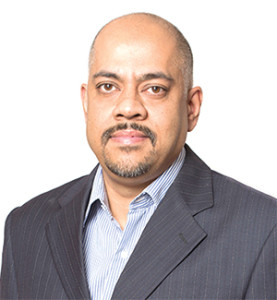
The health solutions through mobile can have immense impact and reach the conventionally far away population, says Rahul Mullick, Head “ ICT & Supply Chain, India Programs, Bill & Melinda Gates Foundation in conversation with Romiya Das of Elets News Network (ENN)
What is your opinion on the emerging mHealth market in India vis-a-vis global market?

mHealth is a growing global market and the same trend is visible in India. A study by PwC projects the market to be around US$ 0.6 billion in India and US$ 23 billion globally by 2017. While Indias share seems relatively small, the growth trajectory is very promising.
How will mobile healthcare be a game changer in Indian healthcare industry?
Mobile penetration in India has increased phenomenally over the last few years and this makes for a great opportunity to use mobile for healthcare. In Indias most populous states of Uttar Pradesh and Bihar mobile penetration is upwards of 65“ 70 per cent. The right health solutions when delivered through mobile can have immense impact and reach people who are conventionally not easy to reach.

How are the mobility devices aiding remote healthcare monitoring?
A large part of the global mHealth market will focus on monitoring services. Mobility devices (bands, health apps on phones etc.) are the ones capturing global attention in mhealth. Many of these are however, urban focussed. To address Indias health concerns, there are many projects in the rural areas that can be game changers. For instance, realtime capturing of weight and height of malnourished children and monitoring growth remotely can help us take corrective measures in solving Indias nutrition concerns. Using mobility devices to capture key diagnostics (BP, Haemoglobin etc.) for rural women can help us proactively take remedial measures for high risk pregnancies and help reduce maternal mortality. Mobility devices can aid in monitoring treatment adherence, a critical need in managing Tuberculosis (TB) patients. All these projects are presently underway in India and present a great opportunity to leverage mobile technology.
What according to you are the challenges and opportunities in the mHealth domain?
The biggest challenge I see is whether mHealth solutions are being designed for scale, especially for the public sector, a large part of Indias health challenge is in the rural areas. Experiments and pilots have to be designed keeping in mind that they can be scaled across the country. This also presents a great opportunity for those developing robust platforms and scalable systems. The other challenge I see is with maintainability of the mobile devices in the rural settings. Smartphones and tablets will get subjected to a lot of rigor and tough use and ensuring procurement of quality devices (and their maintenance) will be important.
How has mHealth evolved in India?
India is now clearly distinguishing between conventional ICT systems which offer SMS or IVR based alerts or services and mHealth applications used on-the-go. This means that hand-held devices (phones or tablets) are also being seen as tools for information capture at source, health diagnostic and workflow management that can enable quicker health response, measurement and analysis, rather than just using them as jobaids, messaging or educational tools. Of course, there is still a great value in the mobile as a behaviour change tool using inter-personal messaging.
Do you see the need for any policy changes to facilitate the growth of mHealth in India?
The governments intent on using mobile technology for health is clearly visible. The ministry of health is forming the National eHealth Authority (NeHA). This, I expect would become a key part of the Digital India programme and will help drive the focus on mHealth for healthcare delivery. As a policy, I would expect that the government would encourage (or even mandate) use of mHealth platforms in the public health system. The efficiency and effectiveness these can bring in (if implemented and supported well) are enormous. I am very hopeful that the paper registers would go in the near future.
Be a part of Elets Collaborative Initiatives. Join Us for Upcoming Events and explore business opportunities. Like us on Facebook , connect with us on LinkedIn and follow us on Twitter , Instagram.













